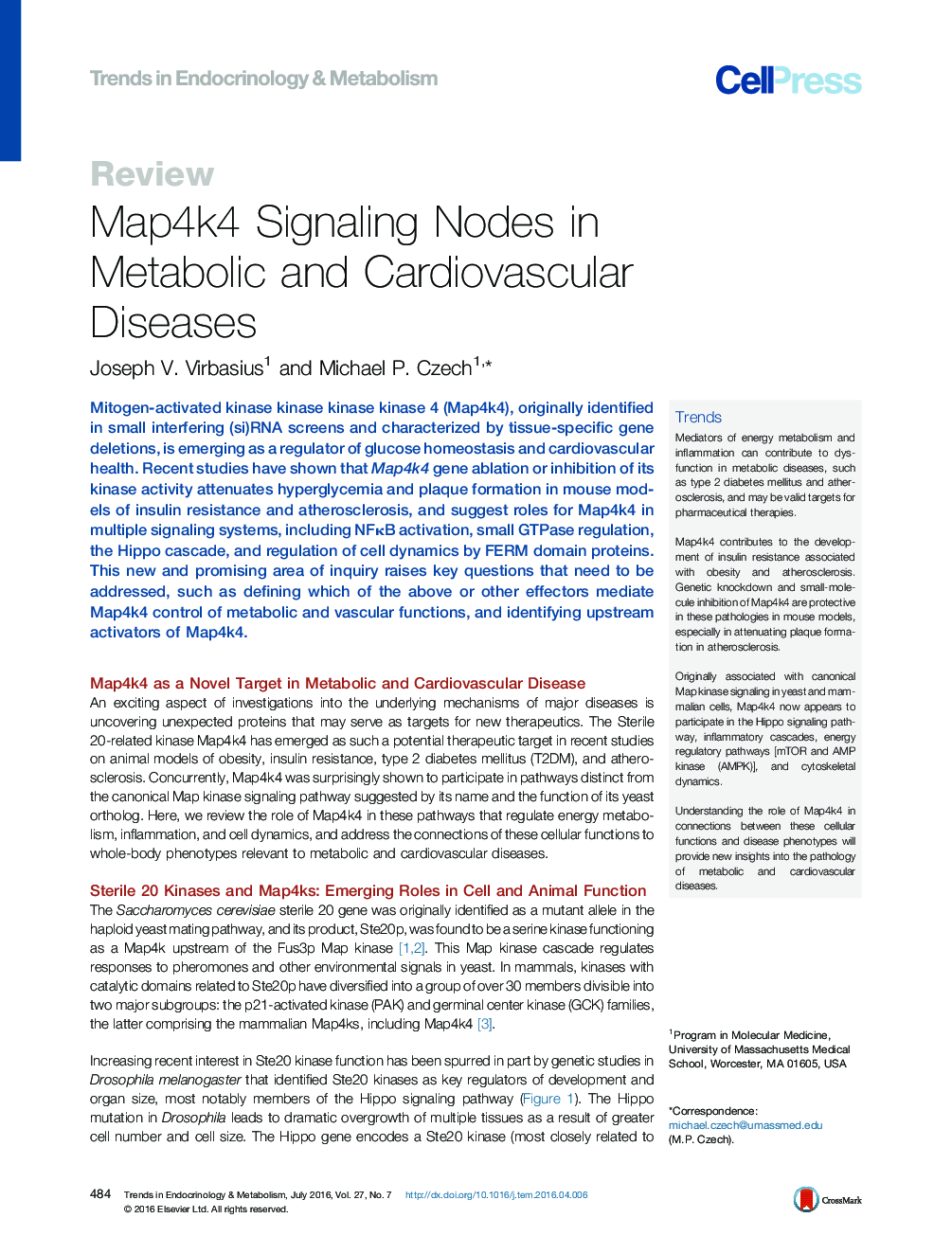| Article ID | Journal | Published Year | Pages | File Type |
|---|---|---|---|---|
| 2810119 | Trends in Endocrinology & Metabolism | 2016 | 9 Pages |
Mitogen-activated kinase kinase kinase kinase 4 (Map4k4), originally identified in small interfering (si)RNA screens and characterized by tissue-specific gene deletions, is emerging as a regulator of glucose homeostasis and cardiovascular health. Recent studies have shown that Map4k4 gene ablation or inhibition of its kinase activity attenuates hyperglycemia and plaque formation in mouse models of insulin resistance and atherosclerosis, and suggest roles for Map4k4 in multiple signaling systems, including NFκB activation, small GTPase regulation, the Hippo cascade, and regulation of cell dynamics by FERM domain proteins. This new and promising area of inquiry raises key questions that need to be addressed, such as defining which of the above or other effectors mediate Map4k4 control of metabolic and vascular functions, and identifying upstream activators of Map4k4.
TrendsMediators of energy metabolism and inflammation can contribute to dysfunction in metabolic diseases, such as type 2 diabetes mellitus and atherosclerosis, and may be valid targets for pharmaceutical therapies.Map4k4 contributes to the development of insulin resistance associated with obesity and atherosclerosis. Genetic knockdown and small-molecule inhibition of Map4k4 are protective in these pathologies in mouse models, especially in attenuating plaque formation in atherosclerosis.Originally associated with canonical Map kinase signaling in yeast and mammalian cells, Map4k4 now appears to participate in the Hippo signaling pathway, inflammatory cascades, energy regulatory pathways [mTOR and AMP kinase (AMPK)], and cytoskeletal dynamics.Understanding the role of Map4k4 in connections between these cellular functions and disease phenotypes will provide new insights into the pathology of metabolic and cardiovascular diseases.
